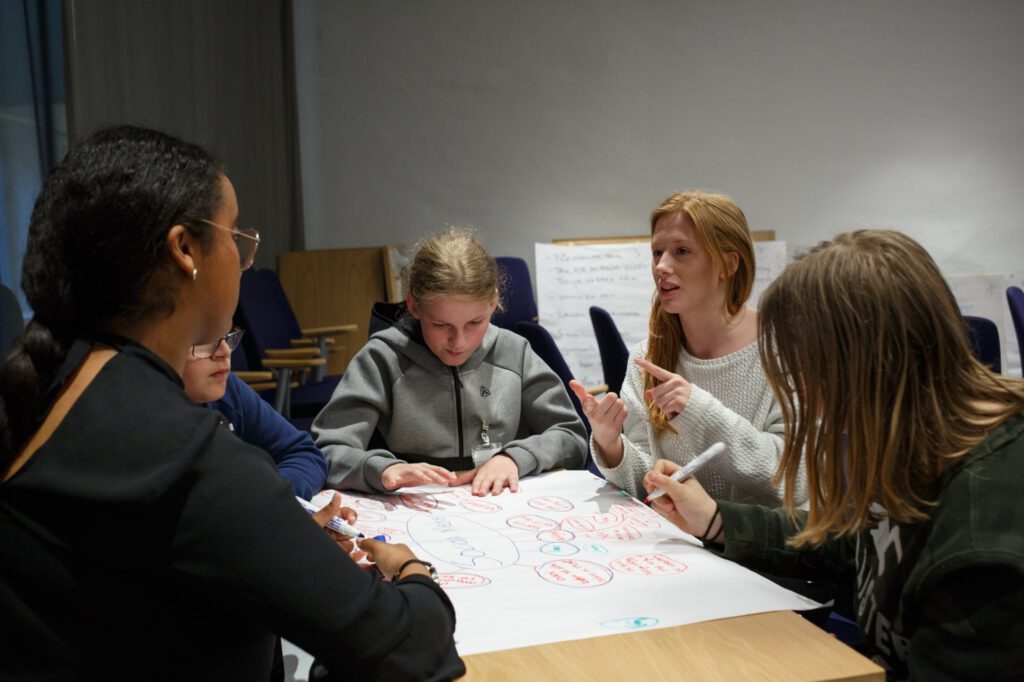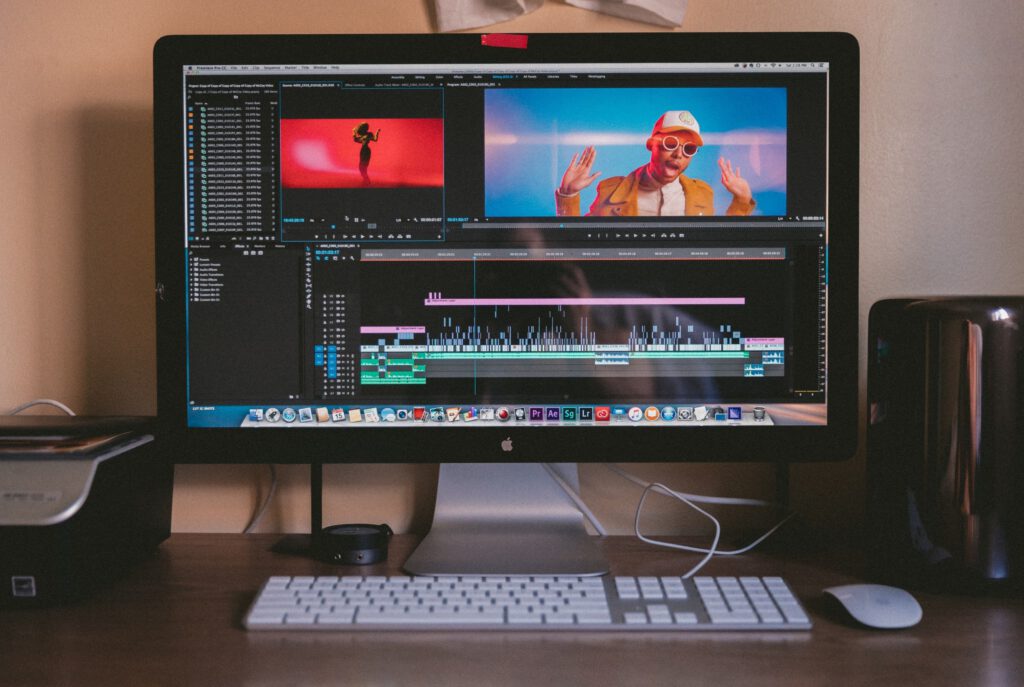Student Agency and Student-Led Learning in Digital Spaces
Wherever learning takes place, students benefit from agency in the learning process. Agency is loosely defined as students’ ability to exercise control over the learning process by setting goals, making choices what and how they learn, and leaning into the metacognitive process of thinking about how they learn best. As long as teachers envision their role as disseminators of knowledge and information rather than facilitators of learning, there will continue to be a sore lack of student engagement agency. In online learning environments and digital spaces, there are new possibilities for students to take ownership over their own education! The following concrete steps help teachers transform online learning environments into vibrant and dynamic communities of learning.
In developing a deeply engaging online learning experience, teachers must begin with identifying expected learning outcomes within standards or prescribed curricula. Unpacking and applying these standards to the instructional design process helps ensure learning remains relevant and rigorous, regardless of the toggle between online and in-person instruction. Standards-based instruction is an important part of rigorous learning! (Moreland University’s online teacher preparation program helps teachers learning to unpack and apply standards in the design of lessons and instruction.)
Once the target knowledge and skills have been identified, teachers can act as curators of texts, tools, and resources. Some schools and districts provide online learning programs which dictate many of the core texts responsible for providing important information. Teachers can help students find reliable resources to enhance textbooks and pre-made curriculum. This is the first step in teaching informational literacy: getting the right texts in front of students. These texts might include dynamic online boards or walls including Glogster, interactive videos available through Edpuzzle, or even leveled news articles housed in NewsELA or Reading A-Z!
The next step is critical for student-centered learning. Teachers must invest time and energy in getting to know students by seeking to understand their needs and interests through pre-assessments, formative assessments, and “Get to Know You” surveys. In this way, teachers determine the following about their students to guide learning experiences:
-
intrinsic motivational factors (i.e., interests and personal goals)
-
prior knowledge and experience
-
prerequisite skills
-
cognitive ability level
-
home life details
-
prior academic experiences
-
linguistic background
Once teachers organize and analyze this critical student data (a process also explored in Moreland University’s online teacher preparation program), they can responsively develop differentiated learning experiences relevant to students’ specific needs. In the online learning environment, there are innumerable tools and resources available to empower each learner to receive an education that matches her needs. The forward-thinking differentiated classroom invites students to become co-creators of knowledge and creative problem solvers by completing engaging tasks and projects which guide their learning.
The type of differentiated described thus far is student-directed learning based on interests. Teachers empower students to develop as self-regulated global learners who function both independently and interdependently as part of dynamic and diverse communities. Students receive individualized attention and support through small-group instruction and remediation in alignment with their growth and development as critical thinkers. In addition, teachers can use students’ background information and preferences to design dynamic learning experiences with multimedia, multimodal, and metacognitive opportunities to engage with subject-area content: “Students engaged in learning that incorporates multimodal designs, on average, outperform students who learn using traditional approaches with single modes,” according to meta-analytic findings in this white paper. Engaging, personalized, and student-directed learning experiences lead to increased student outcomes.
Classrooms, both online and physical, can transform into learning laboratories wherein students uncover solutions to real-world and personally relevant problems as part of the learning journey. Each learning activity is an opportunity for exploration and collaboration! Students become agents of their own learning as they research, apply, and even develop ideas and practice skills outlined in class goals and standards. What is the role of teachers in this novel environment?
-
Teachers creatively integrate skills and information from the standards into student-led tasks and projects in ways that support student success and help them meet the expected curricular outcomes.
-
Teachers develop dynamic multimedia learning experiences that attend to students’ needs, interests, and preferences.
-
Teachers explicitly instruct and model 21st-century skills which set students up for success outside of the classroom.
-
Teachers establish success criteria through thoughtful rubrics and formative progress-monitoring processes that help keep students on track.
-
Teachers develop and facilitate small-group, targeted instruction through multi-tiered systems of support to respond to trends in data on student performance as it pertains to the standards and classroom behavior.
-
Teachers embolden students to be successful citizens and community leaders, holding them accountable to classroom norms and expectations in order to maintain a positive culture of learning.
There is one final exciting element to this approach: Teachers can follow their passions and mindfully integrate ideas, topics, resources, and tools that inspire them each day as a model of lifelong learning! Students often cite teachers as some of the most influential and inspiration people in their lives. When teachers are excited about learning, so are students!
In Moreland University’s TEACH-NOW Teacher Preparation Certificate Program in which I am an instructor, I introduce teacher candidates to this transformational reconceptualization of teaching in the module “The Learner and Learning in a Digital Age.” Rather than calling ourselves teachers or educators, we adopt new titles to encapsulate our roles in the forward-thinking, student-centered, 21st-century learning environment. The culmination of one of our weekly live virtual classes is a person-by-person reintroduction to the group using a new title of each individual’s choosing. Some choose “Cheerleader of Learning,” “Adventure Guide,” or even “Facilitator of Discovery!” What is your new title?



